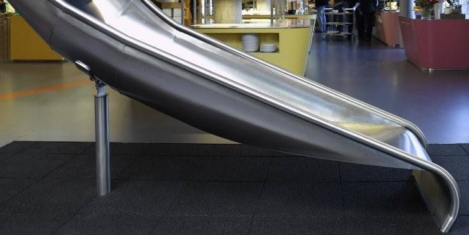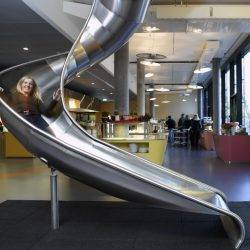August 17, 2017
Precarious flexible working lives create toxic relationships between managers and workers, claims study
 Millions of British workers are having their health and home life put at risk and are having to beg for extra work to make ends meet because bosses are not offering them regular work patterns, a new study from Oxford and Cambridge Universities suggests. According to the study, Powerful times: Flexible discipline and schedule gifts at work published in the journal Work, Employment and Society, around 4.6 million people are subject to ‘precarious scheduling’ from employers which means that their hours are so inconsistent and unpredictable that they cannot make plans, leading to stress and problems in their home lives. The researchers said that many workers now find themselves in ‘degrading’ relationships with managers in which they are obliged to constantly ask for more work and changes to allow them to care for children and plan their domestic and recreational lives.
Millions of British workers are having their health and home life put at risk and are having to beg for extra work to make ends meet because bosses are not offering them regular work patterns, a new study from Oxford and Cambridge Universities suggests. According to the study, Powerful times: Flexible discipline and schedule gifts at work published in the journal Work, Employment and Society, around 4.6 million people are subject to ‘precarious scheduling’ from employers which means that their hours are so inconsistent and unpredictable that they cannot make plans, leading to stress and problems in their home lives. The researchers said that many workers now find themselves in ‘degrading’ relationships with managers in which they are obliged to constantly ask for more work and changes to allow them to care for children and plan their domestic and recreational lives.
(more…)










 There is growing sentiment among younger workers that flexible working is less a right – as outlined by the Government in 2014 – and more a ‘selective benefit’ for a choice group of employees. New research by
There is growing sentiment among younger workers that flexible working is less a right – as outlined by the Government in 2014 – and more a ‘selective benefit’ for a choice group of employees. New research by 
 UK employment is predicted to grow strongly in the third quarter of 2017, but wage growth is likely to remain weak, according to the latest CIPD/The Adecco Group Labour Market Outlook. Although the UK labour market remains buoyant, basic pay award expectations for the next 12 months remain at just 1 percent. Put against the backdrop of poor productivity growth, the report points to an increase in labour supply over the past year as a key factor behind the modest pay projection. This is driven by relatively sharp increases in the number of non-UK nationals from the EU, ex-welfare claimants and 50-64 year olds. This increase in labour supply may explain why the jobs market remains challenging for some jobseekers, especially those seeking lower-skilled jobs. Employers report a median number of 24 applicants for the last low-skilled vacancy they tried to fill, compared with 19 candidates for the last medium-skilled vacancy and eight applicants for the last high-skilled vacancy they were seeking to fill. Overall, employers felt that around half of applicants were suitable for each role they were trying to fill.
UK employment is predicted to grow strongly in the third quarter of 2017, but wage growth is likely to remain weak, according to the latest CIPD/The Adecco Group Labour Market Outlook. Although the UK labour market remains buoyant, basic pay award expectations for the next 12 months remain at just 1 percent. Put against the backdrop of poor productivity growth, the report points to an increase in labour supply over the past year as a key factor behind the modest pay projection. This is driven by relatively sharp increases in the number of non-UK nationals from the EU, ex-welfare claimants and 50-64 year olds. This increase in labour supply may explain why the jobs market remains challenging for some jobseekers, especially those seeking lower-skilled jobs. Employers report a median number of 24 applicants for the last low-skilled vacancy they tried to fill, compared with 19 candidates for the last medium-skilled vacancy and eight applicants for the last high-skilled vacancy they were seeking to fill. Overall, employers felt that around half of applicants were suitable for each role they were trying to fill.












 Nearly three quarters of employers in a recent poll say retaining female talent in the workforce is the most important issue in HR in 2017, as changes to childcare funding could impact on the recruitment and retention of working mothers. The research, which was carried out by My Family Care and recruitment firm Hydrogen, found that most employers thought that flexible working and supporting working parents and carers was important to them but strikingly, nearly three quarters (70 percent) rate the issue of retaining female talent after parental leave as the most important issue. However, 60 percent of HR professionals said their company provided no form of coaching or training support for their employees going through the parental transition. When it comes to the success of their family friendly initiatives, flexible working proved to be the most successful, followed by their Childcare Voucher Scheme and then enhanced maternity or Shared Parental pay.
Nearly three quarters of employers in a recent poll say retaining female talent in the workforce is the most important issue in HR in 2017, as changes to childcare funding could impact on the recruitment and retention of working mothers. The research, which was carried out by My Family Care and recruitment firm Hydrogen, found that most employers thought that flexible working and supporting working parents and carers was important to them but strikingly, nearly three quarters (70 percent) rate the issue of retaining female talent after parental leave as the most important issue. However, 60 percent of HR professionals said their company provided no form of coaching or training support for their employees going through the parental transition. When it comes to the success of their family friendly initiatives, flexible working proved to be the most successful, followed by their Childcare Voucher Scheme and then enhanced maternity or Shared Parental pay.








August 14, 2017
Seven ways in which flexible working is making our lives more rigid
by Mark Eltringham • Comment, Flexible working, Technology
(more…)